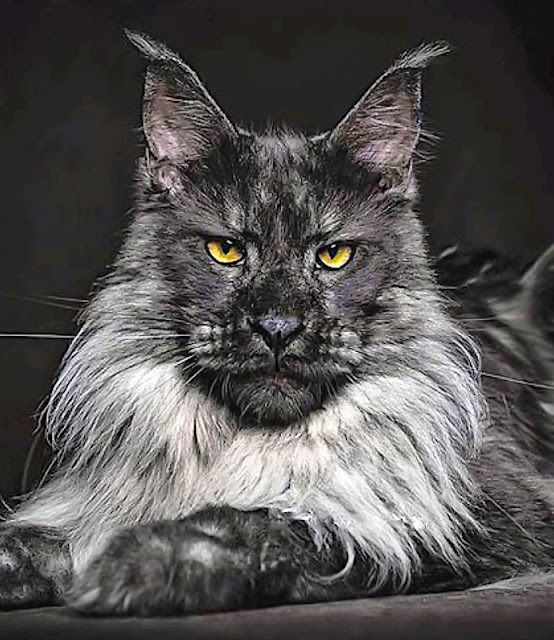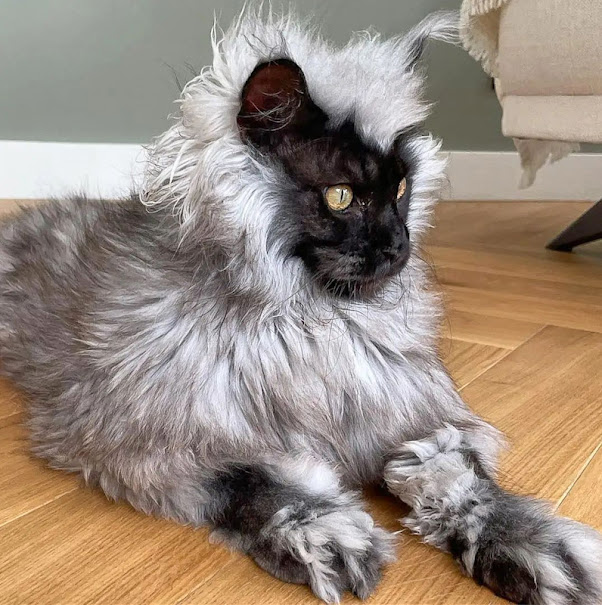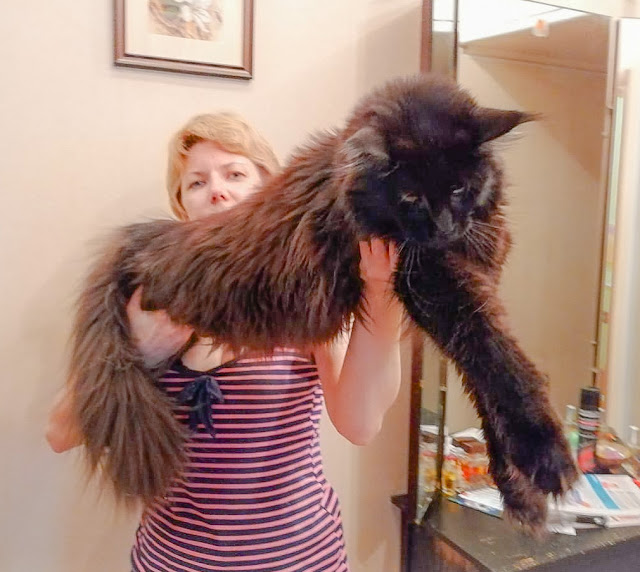Why do Maine Coon cats get hip dysplasia?
A lot of people know that the Maine Coon cat is prone to getting hip dysplasia (HD). HD is, regrettably, associated with this popular cat breed. HD can affect any cat both purebred, pedigree and random bred cats. It affects dogs more than cats. It is an inherited disorder. It is a genetic disease. It is not a single gene which causes the disease but many (it is polygenetic). It appears that even today the experts don't know the full genetic story behind HD. It is therefore a complex disease. It is not congenital meaning that the cat is not born with it but the disease develops over a period of time.
 |
| My thanks to Vet Network for the image. |
This cat breed is particularly prone to the condition because of its size. Apparently around one quarter of all MCs have HD based on X-rays submitted to the Orthopedic Foundation for Animals (OFA).
The Maine Coon is the biggest domestic cat other than a first filial wild cat hybrid. Size puts extra weight on the ball and socket joint of the hip where the leg meets the hip which exacerbates the problem. There is an instability in the ball and socket joint.
The Maine Coon is the biggest domestic cat other than a first filial wild cat hybrid. Size puts extra weight on the ball and socket joint of the hip where the leg meets the hip which exacerbates the problem. There is an instability in the ball and socket joint.
There is a looseness between the femoral head and the socket that is part of the hip.
The looseness contributes to further damage and change such as a deterioration of the cartilage which lubricates the joint. The head of the bone (ball shaped) and the socket of a hip rub together directly which causes the cat to experience pain and the cat develops osteoarthritis of the hip.
Maine Coon cats that are severely affected by this condition and who experience pain, as mentioned, may appear to walk stiffly, walk with a limp and may be reluctant to jump or climb. Cats that are affected moderately are less lame but can be lame from time to time.
Sometimes, as is typical of the domestic cat, the discomfort is hidden and the cat does not show that he has HD. No doubt, selective breeding when creating the Maine Coon cat, plays a major role in either the perpetuation of this genetic disease or its gradual elimination by culling cats from the breeding programme that have HD.
Diagnosis of HD is made by x-raying the affected cat's hips. In conclusion, Maine Coon cats are linked to this genetic disease because of their size which makes them prone to the disease.
Maine Coon cats that are severely affected by this condition and who experience pain, as mentioned, may appear to walk stiffly, walk with a limp and may be reluctant to jump or climb. Cats that are affected moderately are less lame but can be lame from time to time.
Sometimes, as is typical of the domestic cat, the discomfort is hidden and the cat does not show that he has HD. No doubt, selective breeding when creating the Maine Coon cat, plays a major role in either the perpetuation of this genetic disease or its gradual elimination by culling cats from the breeding programme that have HD.
Diagnosis of HD is made by x-raying the affected cat's hips. In conclusion, Maine Coon cats are linked to this genetic disease because of their size which makes them prone to the disease.
I have an article on a four-month-old Maine Coon who developed hip dysplasia. So, it can affect young cats. I also have a page on hip dysplasia being more severe in Maine Coons when it affects both hips.
And finally, I have a further page on 15 facts about hip dysplasia in Maine Coon cats which may interest you.










Comments
Post a Comment
Please share your Maine Coon experiences.